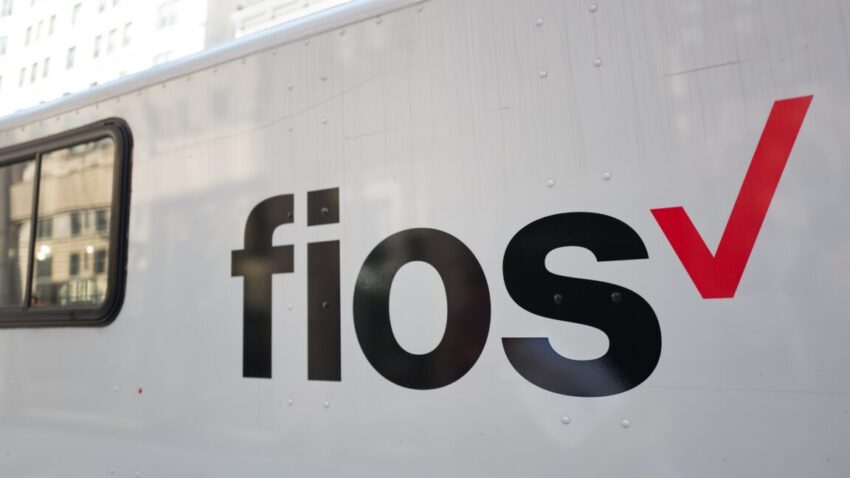
verizon to offer 20 broadband in california Verizon has announced a significant initiative to provide affordable broadband services in California as part of its strategy to secure approval for its merger with Frontier Communications.
verizon to offer 20 broadband in california
Details of the Broadband Offering
In an effort to facilitate its $9.6 billion acquisition of Frontier Communications, Verizon has committed to offering a low-cost broadband service priced at $20 per month for low-income residents in California. This initiative is part of a broader strategy to address concerns regarding access to affordable internet services, particularly for underserved communities.
Service Specifications
The broadband service will include two distinct offerings:
- Fiber-to-the-Home Service: This plan will provide symmetrical speeds of 300 Mbps, allowing users to download and upload data at the same rate. Such speeds are increasingly becoming the standard for households that rely on multiple devices for streaming, gaming, and remote work.
- Fixed Wireless Service: Verizon will also offer a fixed wireless plan with download speeds of 100 Mbps and upload speeds of 20 Mbps. This option is particularly beneficial for areas where traditional wired connections may be limited or unavailable.
Both plans are designed to meet the needs of low-income families, ensuring that they have access to high-speed internet, which is essential for education, employment, and overall quality of life.
Regulatory Context
The commitment to provide these affordable broadband options is outlined in a joint motion filed by Verizon and the California Public Advocates Office, which seeks approval from the California Public Utilities Commission (CPUC). The motion is part of the regulatory process that Verizon must navigate to finalize its merger with Frontier Communications.
Duration and Conditions of the Offering
Verizon’s commitment to these low-cost broadband plans is not just a temporary measure. The company is required to maintain these offerings for a minimum of 10 years. This long-term commitment is intended to ensure that low-income residents have sustained access to affordable internet services.
Furthermore, after the initial three-year period, Verizon will be obligated to make “commercially reasonable efforts” to enhance the service speeds while keeping the price point at $20. This provision reflects a growing recognition of the need for internet service providers to adapt to the increasing demands for bandwidth as more households engage in data-intensive activities.
Implications for Low-Income Residents
The introduction of a $20 broadband plan has significant implications for low-income residents in California. Access to reliable and high-speed internet is increasingly viewed as a fundamental necessity in today’s digital age. It enables individuals to participate in remote work, access educational resources, and engage with essential services.
Bridging the Digital Divide
One of the primary goals of this initiative is to bridge the digital divide that has persisted in many communities. Low-income families often face barriers to accessing high-speed internet, which can hinder their ability to thrive in an increasingly digital world. By providing affordable options, Verizon aims to empower these communities and enhance their connectivity.
Potential Challenges
While the initiative is commendable, there are potential challenges that could arise. The requirement for Verizon to increase speeds after three years may present logistical hurdles, particularly in areas where infrastructure improvements are needed. Additionally, the effectiveness of outreach efforts to ensure that eligible residents are aware of and can access these plans will be critical.
Stakeholder Reactions
The announcement has garnered mixed reactions from various stakeholders, including consumer advocacy groups, industry analysts, and regulatory bodies. Many consumer advocates have praised the initiative as a step in the right direction, emphasizing the importance of affordable internet access for low-income families.
Support from Consumer Advocacy Groups
Consumer advocacy organizations have long argued for the need for affordable broadband options, particularly in underserved areas. They view Verizon’s commitment as a positive development that could lead to improved access for those who have been historically marginalized in terms of internet connectivity.
Concerns from Industry Analysts
On the other hand, some industry analysts have expressed skepticism regarding the long-term sustainability of such low-cost offerings. They question whether Verizon can maintain service quality while adhering to the $20 price point, especially as operational costs continue to rise. The balance between affordability and quality will be a critical factor in the success of this initiative.
Broader Context of Broadband Accessibility
The move to offer affordable broadband services is part of a larger trend among telecommunications companies to address the growing demand for high-speed internet. The COVID-19 pandemic highlighted the importance of reliable internet access, as many individuals transitioned to remote work and online learning. This shift has intensified calls for more equitable access to broadband services.
Regulatory Landscape
The regulatory landscape surrounding telecommunications mergers has become increasingly complex, with agencies like the CPUC scrutinizing proposed deals for their potential impact on consumers. Verizon’s commitment to affordable broadband is likely to be viewed favorably by regulators, as it aligns with broader goals of enhancing access to essential services.
Future of Telecommunications Mergers
As telecommunications companies continue to explore mergers and acquisitions, the focus on consumer welfare and accessibility will likely play a pivotal role in regulatory approvals. Companies may need to demonstrate their commitment to affordable services as a condition for merger approvals, setting a precedent for future deals in the industry.
Conclusion
Verizon’s commitment to offering $20 broadband service in California represents a significant step toward enhancing internet accessibility for low-income residents. By providing affordable options, the company aims to bridge the digital divide and empower underserved communities. However, the success of this initiative will depend on Verizon’s ability to maintain service quality while navigating the challenges associated with infrastructure improvements and outreach efforts.
As the regulatory landscape continues to evolve, the focus on consumer welfare and accessibility will remain paramount in the telecommunications industry. Stakeholders will be closely monitoring the implementation of these broadband offerings and their impact on the communities they are designed to serve.
Source: Original report
Was this helpful?
Last Modified: September 17, 2025 at 12:36 am
5 views















